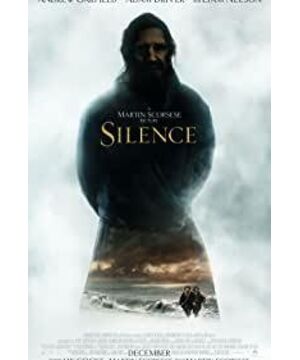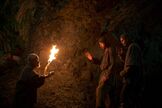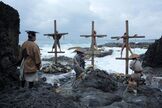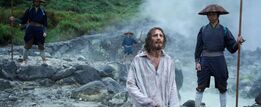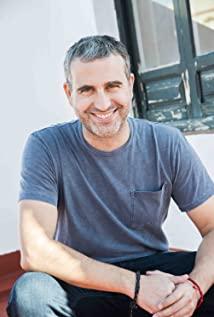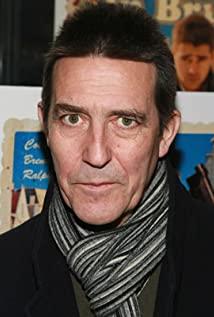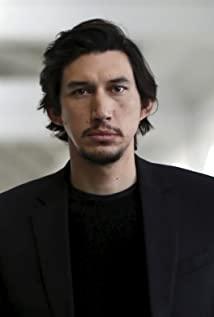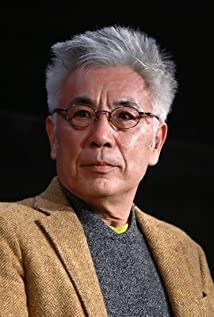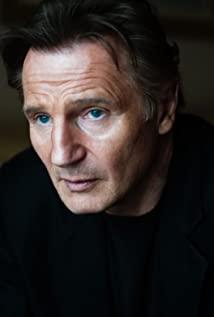(Note: This article is adapted from the book "I have peace like a river")
Text/Wang Shuya
For the Japanese, perhaps the attraction of the Ganges is comparable to that of heaven. As to us, the priestly fire on Mount Olympus really dazzles the blood of Christ on the cross. I recently watched two Japanese movies about going to the Ganges to find hope. A girl who applied for a job in a company had nothing to say about her resume. An idea flashed in her mind, and she blurted out a lie that I once swam in the Ganges River full of corpses. This image, which should belong to the poet, led her to India. After countless struggles, she mustered the courage and jumped into the most religious and polluted river in the world.
This is a sketch-style "Butterfly Swimming in the Ganges". The other is "Deep River" by director Xiong Jingqi, who died in 2007. But he is not my main character. I'm talking about the original author Shusaku Endo. Lu Miao's "Endo Shusaku - A Pioneer of Japanese Christian Literature", also published in 2007, is probably the first review monograph on Endo in China.
In "Deep River", people also gather around the Ganges with various beliefs. Mitsuko is similar, even more postmodern, to the girl who dreamed of swimming in the Ganges butterfly. She teases Otsu, her Christian classmate, that if Otsu is willing to give up her faith, she loves him. She played Dajin around so much that she could almost use "beginning chaos and ending abandonment" - a word I never used since I learned it. Years later, Mitsuko, who had no hope in her marriage, turned her eyes to the Ganges and the gods of India. As a result, in Calcutta, she met Otsu who became a priest. In a multi-religious modern scene, Endo shapes a modern soul, Mitsuko, and an ancient soul, Otsu. Mitsuko is almost a copy of this generation. It's cool to live in the moment. Cool is nothingness. So in a literary fiction, Endo, with his characters, begins to turn to a pantheistic, humanistic, and spiritual home-like belief.
But Otsu does not belong to this generation. In that city of Mother Teresa, he walked like Christ among the poor, and through the valley of temptation Mitsuko gave him. Otsu is a true Christian. From the beginning to the end, his soul was weak, and in every weakness he was no higher than those who had courage. Endo's epic is not, as some commentators say, a so-called cultural conflict between monotheistic Christianity and polytheistic Hinduism. This is Huntington's vision, not the vision of a writer, nor the tentacles of a faith seeker. The great thing about Endo is that he wrote a more authentic Christian than Mother Teresa. It is a believer who lives hard and has hope amid the tension between weakness and strength.
Only when Otsu's weakness is weak enough to be empathetic. As the Bible says, the Christ on the cross "was not incapable of sympathy for our infirmities, but in all things he was tempted just as we are." That's why Otsu's confidence on the banks of the Ganges is so dazzling. Until the end, he was beaten to death in the street by the people he was helping. What people see is not an idol who casts the rest into weakness, but a real power that can turn our weakness into strength every second.
In contrast, Mother Teresa's image to us was, in fact, Confucian or Buddhist, until her diary and letters were published last year. In other words, a great man, someone we never dream of becoming. There are too few people like that. Some people can become Buddhas, but most people can't play; some people can become saints, and all living beings can't even think about it. But in the letter, Mother Teresa admitted that for nearly half a century, she had lived in the darkness of her heart and the loneliness of not feeling God. In 1958, she wrote: "My smile is a big mask that hides the pain in my heart." In 1979, on the eve of receiving the Nobel Peace Prize, she wrote to her pastor, saying, "For me, silence and The emptiness is so great that I can see but not see, hear but not hear, pray but cannot speak".
Only then did Mother Teresa, like Otsu, become a living Christian. It turns out that Christians are very weak people. Their bones are weak, deficient and even depraved, just like everyone else. Their only perseverance is in their weakness, not giving up cheering the name of the Christ on the cross; nor hindering their confession and repentance because of pride. If you admit that you are particularly weak, God will provide you with special grace. Therefore, Christianity never comes to all who think they are good. As Christ said, I came for the sick. You are not a patient, he is not here for you.
Mother Teresa's letters, let the world finally see a soul as pitiful as we are. Unlike all eminent monks or sages, she is not a moral model, but an example of "spiritual poverty". The greatest in man is to admit that he is the poorest in spirit. Whoever is needy opens his mouth; whoever opens his mouth is filled. On the contrary, whoever understands Mother Teresa in the way of a moral model has lost hope in himself.
Endo himself cannot overcome this weakness, and in the novel he tries to move towards an Eastern fusion. It's a pity he didn't live until Mother Teresa's diary was published. Because Endo's best works do not give answers, but describe the dilemma of weakness and confidence.
In 1996, Endo watched Xiong Jingqi's sample film on his hospital bed, and was sighed. Before his death, he instructed his family to bury "Deep River" and another "Silence", two books with him.
In 1969, director Shinoda Masahiro brought "Silence" to the screen. The novel tells the story of two Jesuit missionaries who fell into doubt in the suffering of believers, and apostates and apostates one after another, when Catholicism was banned in Japan in the 17th century. The cruelty of the persecution of Christians in Japan during this period was far greater than that in China, perhaps only comparable to the time of Roman Nero. The difference is that 200 years of persecution in Rome ended with the Christianization of Europe. But the Japanese samurai and swords almost uprooted the influence of Christianity. Until today, it is difficult for Christianity to have a prominent presence in Japanese society and culture. In a speech, Endo repeatedly said, "I am a Christian, and I am a Japanese who belongs to Christ." Therefore, his quest for faith, loneliness in Japanese history, and compassion for weakness and suffering are all like The day asks the general, shocking.
Recently, Martin Scorsese is working on a remake of this masterpiece. A company specially released a digitally restored 1969 version of "Silence", which gave me the opportunity to watch this pre-birth film with a group of Christians. The believer, Yoshijiro, who betrayed the missionary inside, wailed to the priest: "I was born weak. I was so weak in my heart that I couldn't die like a martyr. What should I do? If it were a peaceful and prosperous world, I would also be a good Christian."
Endo is a Christian in the Catholic Church, and "Deep River" was completed after he was 70 years old. From Yoshijiro to Otsu, his pen began to touch the faith of grace, but soon diluted the word of Christ with the waters of the Ganges. To be diluted is to be despised. Lao Tzu said that when Tao is despised, it becomes virtue. Like Mother Teresa, the theological influence of Catholicism made Endo unable to get rid of the desolation in his heart brought about by his good deeds. His writing in Japan is like Mother Teresa's journey in India. Faith is no longer a convenient method, but it is not a joyful and abundant life.
The road that Endo has not finished is the road that Christianity has not finished in Japan. Mother Teresa's unfinished road is the unfinished road of Christianity in India. David said, "What is a man, that you care for him." But Bojo said, "What is a man, you test him all the time." The faith of man is actually between these two verses. It doesn't matter if a person stands in this universe with India or Japan under his feet.
In the end, Mitsuko stood by the Ganges and muttered to herself: "This is a deep river in the world that carries sorrow. I am a part of it." In the words of the prophet Isaiah, "In all their suffering, he suffer as well.”
The dead are thrown into the Ganges or sent to shrines. Living people, where are people thrown?
2008-8-4
View more about Silence reviews


